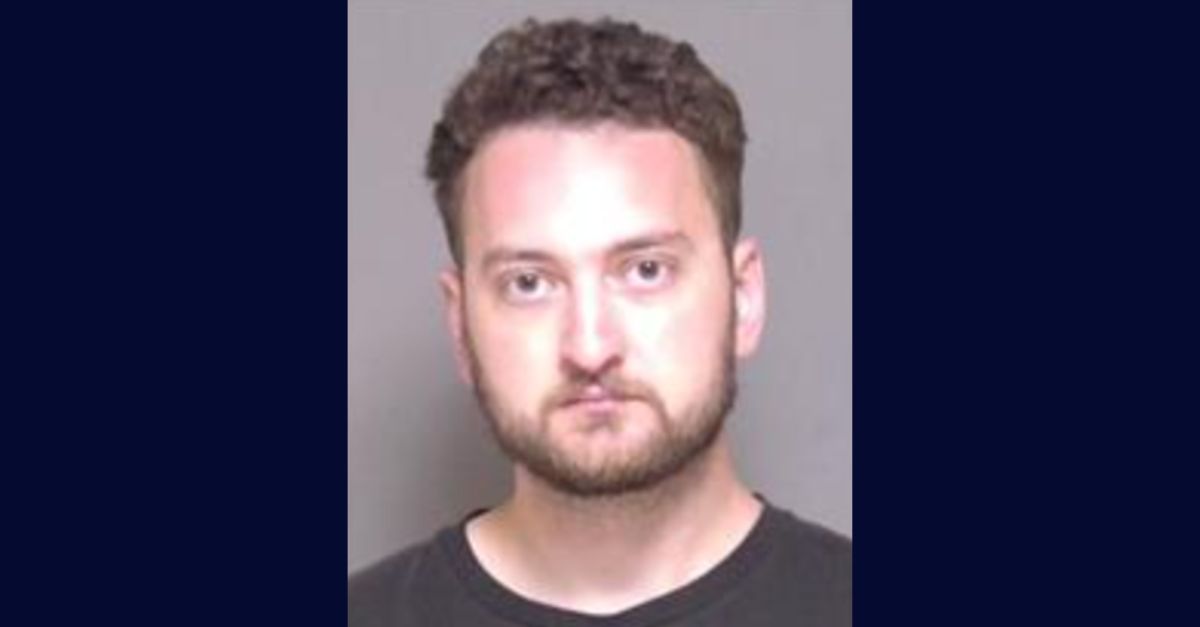The Mayo Clinic doctor and poison control specialist in Minnesota accused of fatally poisoning his wife bought the drug that killed her using his work email address and then blamed her for fraudulently using his name to buy the drug, according to search warrants reviewed by Law&Crime.
Dr. Connor Bowman, 30, is charged with second-degree murder in the death of 32-year-old Betty Jo Bowman, who mysteriously grew ill after drinking a smoothie he made her, causing her to go to the hospital on Aug. 16, where she died four days later.
The Rochester Police Department applications for warrants sought information from Amazon, PayPal and the Mayo Clinic, where Connor Bowman was a pharmacy resident. They detail Connor Bowman’s alleged actions in the days leading to his wife’s death. Among the previously undisclosed revelations was that using the email address [email protected], he bought two drugs from an online wholesaler. The first purchase on Aug. 3 was for $15.20 for an erectile dysfunction drug, while the second was on Aug. 11 for $52.20 to buy the drug colchicine, the drug used to treat gout that investigators believe Connor Bowman used to poison his wife.
Connor Bowman then allegedly contacted the drug wholesaler after the purchase to ask they delete his account information because he claimed his wife had bought colchicine “under his name fraudulently,” the warrant said. He also told the wholesaler that the Mayo Clinic confronted him about buying the prescription for himself. The warrant to the Mayo Clinic requests his personnel file, emails sent between July 9 and Oct. 20 and any disciplinary actions the Clinic took against him for ordering prescriptions for himself.

Dr. Connor Bowman is accused of using the drug colchicine to fatally poison his wife in Minnesota, according to authorities. (Rochester Police Department)
As Law&Crime previously reported, the couple’s friends grew suspicious that the doctor may have poisoned his wife because of his blasé behavior in the days following her death. In other warrant applications, friends depicted to investigators a marriage on the rocks because of financial troubles and infidelity.
Though the Bowmans were in an “open relationship,” the couple agreed they would not become emotionally attached to their other partners. Connor Bowman became infatuated with his new girlfriend, friends told detectives. Betty Bowman allegedly confronted her husband about the woman and suggested they start divorce proceedings. One friend said she went to see Connor Bowman at his home three days after the death to find the girlfriend there with him and his wife’s photos taken down, the warrant said.
Another pal said she was visiting with Betty Bowman 10 days before her death when she gave her a smoothie her husband had made for her in a Lilo & Stich cup. It “tasted very bad,” and the friend thought it was strange Connor Bowman had made a smoothie for his wife because he “never made anything for anybody,” according to the warrant.
“[The friend] said jokingly at the time that Connor must be trying to poison her, but didn’t think much of it at the time. Betty even joked that she had considered it at the time and said she didn’t think that would happen but decided to not drink the smoothie anyway and threw it out,” the warrant said. The friend became suspicious when Betty Bowman suddenly became ill and died.
Connor Bowman also was not acting like a grieving husband typically would in the days following his wife’s death, the friends said. He seemed “stoic and calm,” even going out for drinks where he “appeared to be happy or at least indifferent” about his wife’s death two days after the fact, friends said. Friends were also aware that Betty Bowman recently learned of her husband’s significant debt that he had not told her about. After her death, Connor Bowman received nearly a $500,000 life insurance policy, police say.
Even more concerning, loved ones told detectives, was Betty Bowman was previously healthy and had no known medical conditions. As someone who had just completed their pharmacist residency at the Mayo Clinic and also worked as a poison control specialist, Connor Bowman would have the means and know-how to poison his wife, friends said. The friends, many of whom are medical professionals, grew wary as her condition deteriorated so quickly with little explanation.
Suspicions arose among investigators when Connor Bowman pushed the medical examiner to skip an autopsy so she could be cremated immediately. Investigators ignored Connor Bowman’s pleas and did an autopsy anyway. The medical examiner determined the cause of death to be the toxic effects of colchicine and the manner of death to be a homicide.
Connor Bowman had attended pharmacy school, worked in poison control in Kansas and was in medical school. A spokesperson from the Mayo Clinic said in a statement to Law&Crime that his residency at the hospital had just finished in October.

Dr. Connor Bowman is accused of fatally poisoning his wife at their home in Minnesota on Aug. 16, 2023. She died four days later at a hospital. Investigators allege that Connor Bowman slipped gout medicine into her smoothie. He’s facing a second-degree murder charge (Betty Bowman: GoFundMe account; Connor Bowman: Rochester Police Department)
“We are aware of the recent arrest of a former Mayo Clinic resident on charges unrelated to his Mayo Clinic responsibilities,” the statement said. The hospital would not comment further.
One of Betty Bowman’s boyfriends told detectives that she told him on Aug. 14 that she “had a few days off work and was looking to spend some time with him.” The two saw each other the next day and texted later that night while she was drinking with her husband at home.
On Aug. 16, she told him she was so sick she could not sleep. She said she thought it may have been an alcoholic drink that she had that caused her illness because it was mixed in a large smoothie, the probable cause arrest affidavit said.
Detectives later learned that Connor Bowman had accessed his wife’s electronic health information at the hospital by using his medical credentials while she was at the hospital and again a few days after she died. The data included admission information, reviewed notes, medications, allergies, and an operating room log, according to the affidavit.
Investigators also seized a University of Kansas laptop that the defendant used as a poison control specialist, which he apparently worked remotely. He worked the job on Aug. 5, 6 and 10. As part of his job, the university gave him a computer to look up drug information while answering calls. An examination of his computer showed he completed searches about the drug colchicine, which is used to treat gout — a condition that causes intense pain in your joints. Neither Bowman nor any other employees working at that time received any calls about gout or colchicine, the affidavit said.
On Aug. 5, Connor Bowman allegedly searched “Internet browsing history: can it be used in court?,” “police track package delivery,” and “delete Amazon history police.” On Aug. 10, he searched “food v. industrial grade sodium nitrate.” He also looked up a journal used by several medical professionals to search the lethality of substances, the affidavit states. He converted his wife’s weight to kilograms and multiplied it by 0.8, which is considered the lethal dosage for colchicine, investigators wrote.
In the days that followed, Connor Bowman searched how to buy colchicine and allegedly bought gift cards to a website that sells the drug, police said.
Investigators sent Betty Bowman’s blood samples to the Minnesota Department of Health, which concluded colchicine was present in her system. The level on Aug. 17 was 29 ng/ML, which is considered elevated. Cops also noted that the drug, which the medical examiner said metabolizes quickly, should not have been in her body because she didn’t have any symptoms that would cause doctors to give her the drug.
Betty Bowman’s obituary — which features a picture of her and her husband — said she was born in Wichita, Kansas, and graduated from the University of Kansas School of Pharmacy with a pharmaceutical doctorate in 2018. The couple married on May 30, 2021. She worked as a “diligent and capable hospital pharmacist” while her husband went through his internal medicine residency, the obit said.
“Her kindness and intelligence was noticed and valued by friends and strangers alike,” the obit said.
A GoFundMe page was started to help Betty Bowman’s mother pay for funeral and legal expenses.
Have a tip we should know? [email protected]

